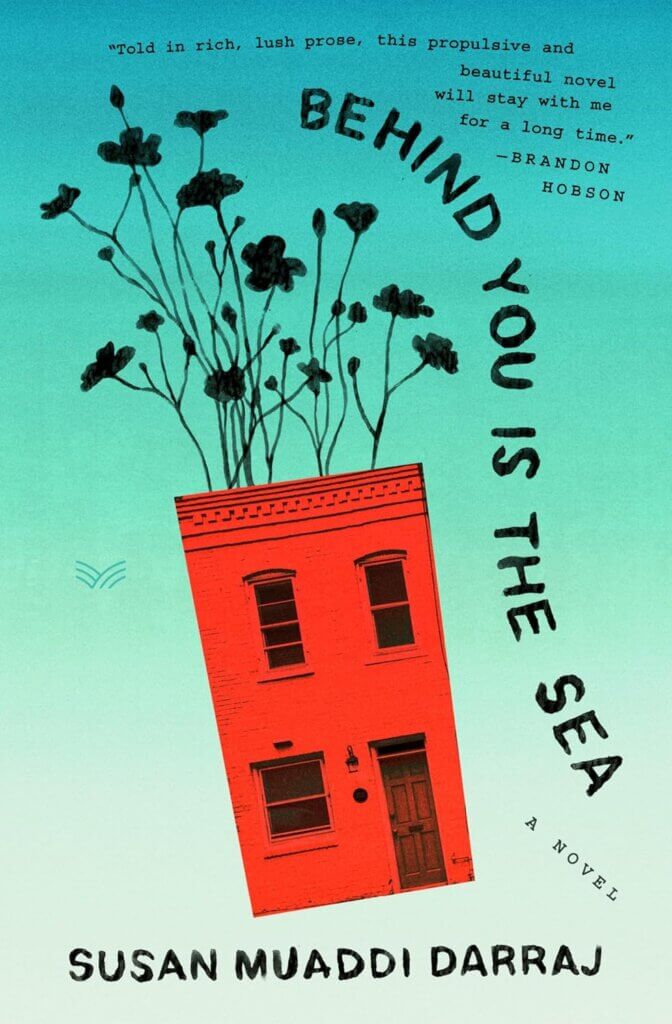Inheriting Palestinian exile across generations – Mondoweiss

BEHIND YOU IS THE SEA
Susan Muaddi Darraj
256 pp. Harper Collins, $26.00
Susan Muaddi Darraj’s powerful first novel, Behind You Is The Sea, begins with an epigraph from Palestinian poet Lena Khalaf Tuffaha. Titled “Ruin,” the poem meditates on the emotional push and pull of five million people in the Palestinian diaspora seeking to build new lives outside of a lost but never forgotten homeland. “If all we are is past,” writes Tuffaha, “who are these millions now gasping for air?”
Muaddi Darraj’s novel was written well before the ongoing genocide against the Palestinian population in Gaza. But it lands as a fresh reminder that for Palestinians, the right to live in Palestine and in newly discovered homelands, like America, is an essential affirmation of what the Native American poet Gerald Vizenor once called “survivance.”
Muaddi Darraj is the author of the award-winning short story collection A Curious Land: Stories From Home, and a successful children’s book series about a young Arab girl named Farah. Her novel draws from the well of both: moving at times between Palestine and the United States, and featuring several prominent Palestinian girls as sharp-eyed protagonists. The book is also an homage to the Palestinian-American community of Baltimore, Maryland, where Darraj resides, and where the bulk of the narrative takes place.
The first chapter of the book, titled “A Child of Air,” both lifts up Tuffaha’s epigraph and drops us into the book’s complex emotional landscape. Reema Baladi is a working-class Palestinian in a novel that is highly attentive to the class structure of Palestinian society. Her father is suffering from cancer, her mother emotionally drained from his illness. Reema is also pregnant. A wedding photo of her parents she keeps at hand shows them boarding a plane years earlier to come to the U.S. “They look so hopeful,” she thinks, “ They have no idea what’s coming.”
This bittersweet beginning foregrounds several themes of Muaddi Darraj’s novel: the inheritance of exile for Palestinians across generations; the economic pressures of survival in a new place; the struggle to make a new life, both figuratively and literally; the navigations necessary for Palestinian women in both new and old worlds.
Muaddi Darraj deploys what might be called a communal story-telling approach to lay out these themes. There is no single narrative line or point of view. Rather, she shows how family, migration, and kinship thread life like Palestinian embroidery, or tatreez. The results are reminiscent of writers like Sandra Cisneros, Alice Childress, and Faith Ringgold, who use storytelling to embody neighborhood, community, and unity-within-difference.
For example, in the chapter following “Child of Air,” we meet Marcus Salameh, a Baltimore city policeman. Salameh is partly estranged from his Palestinian father and protective of his aspiring younger sister, a strong student with good school marks. Amal, the sister, is dating an African-American. Muaddi Darraj includes the father’s anti-Black racism to mark the contradictory location of different Arab generations in the U.S. social hierarchy.
Salameh also becomes the main character in the novel’s most powerful single subplot: his father’s death forces him to return to Palestine, where he learns of a surprising — and secret — life his father has led with a Palestinian woman imprisoned for participating in the first intifada. Muaddi Darraj wrings brilliant pathos and thematic complexity from this suturing of the lives of a Palestinian-American policeman and a Palestinian-born political prisoner. Their single story embodies numerous strands of historical memory, collision, contradiction, and possible redemption for Palestinians in the diaspora.
Behind You Is the Sea will feed readers hungry for new social histories of Palestinian-American life.
An equally powerful chapter titled “The Hashtag” shows us Rania Mahmouz, a conscientious Baltimore mother, seeking help from the school for her special needs son. Mahmouz becomes obsessed with a Twitter campaign called #Justice4Rasha started in Palestine for a young woman who has been the victim of brutal sexual violence. Rania’s vulnerability, the vulnerability of her children, and the matrix of a patriarchal culture in the homeland culminate in her understanding of her family’s complicity in sexism and women’s oppression. Muaddi Darraj also teases out the importance for Palestinians of social media reporting across the diaspora, something experienced every day in traumatic form since the current war on Palestine began.
Muaddi Darraj frames dramatic stories like these with quotidian snapshots of Palestinian life: of housecleaners and real estate tycoons, lawyers, and their lovers. The book successfully juggles these by rendering in tightly controlled detail the minutiae of characters’ lives: what they buy at the Dollar Store, or how money expresses itself among the Palestinian nouveau riche. In these scenes, Muaddi Darraj uses wit and knowingness to keep us close, familiar, and at ease as readers. She manages to be both stern and compassionate in her treatment of character, settling on a long view of a people she clearly loves.
Behind You Is the Sea will feed readers hungry for new social histories of Palestinian-American life. Its courageous confrontation with sexuality and sexism in Palestinian communities does the necessary work of honest art. The book also raises the profile of the city of Baltimore — home to both Edgar Allen Poe and Billie Holiday — as an Arab-American city that is equal parts city of aspiration and Palestinian blues.
Lastly, anticipating the history we are living now, Muaddi Darraj shows a savvy understanding of biases potential readers might bring to her novel. In a discussion of Disney’s Aladdin, a mother tells her daughter she refuses to watch it because it “portrays Arabs as barbaric people.” In the face of current ongoing media demonizations of Palestinians and rationalizations of Israeli genocide, Muaddi Darraj’s sensitive, affectionate, multi-layered novel of Palestinian life is not so much an escape from reality as a hopeful parable for our times.















